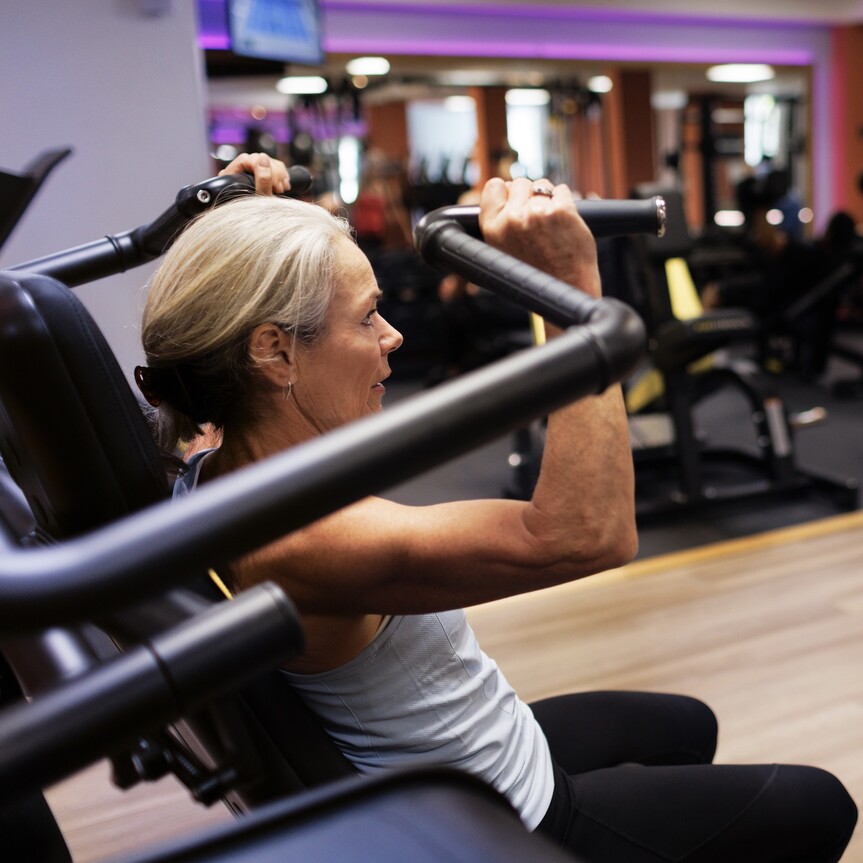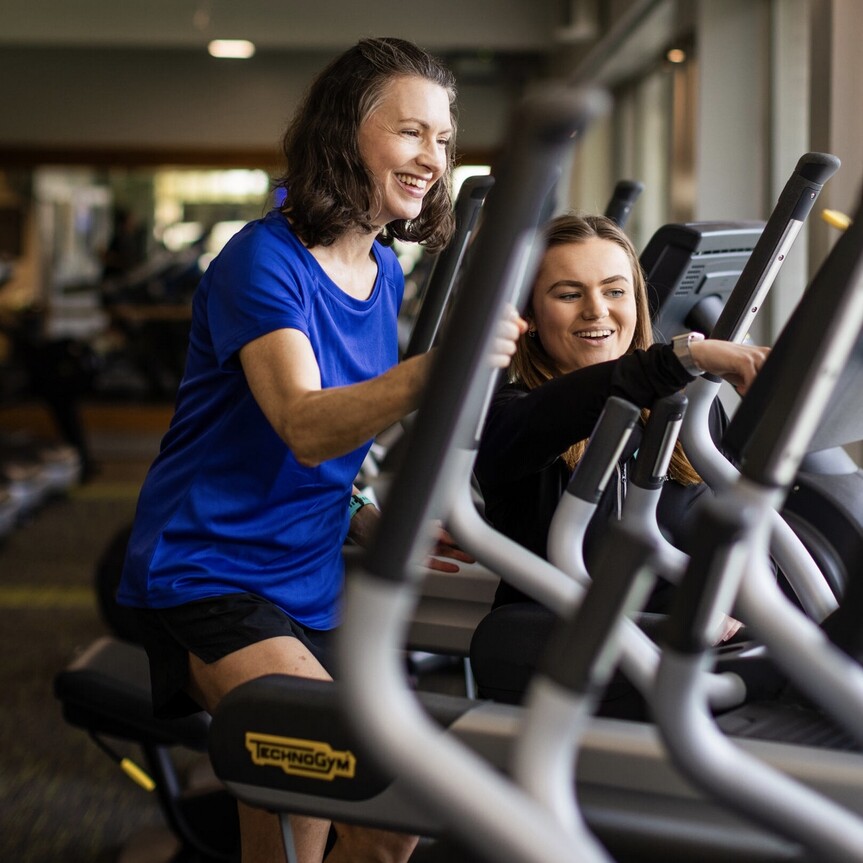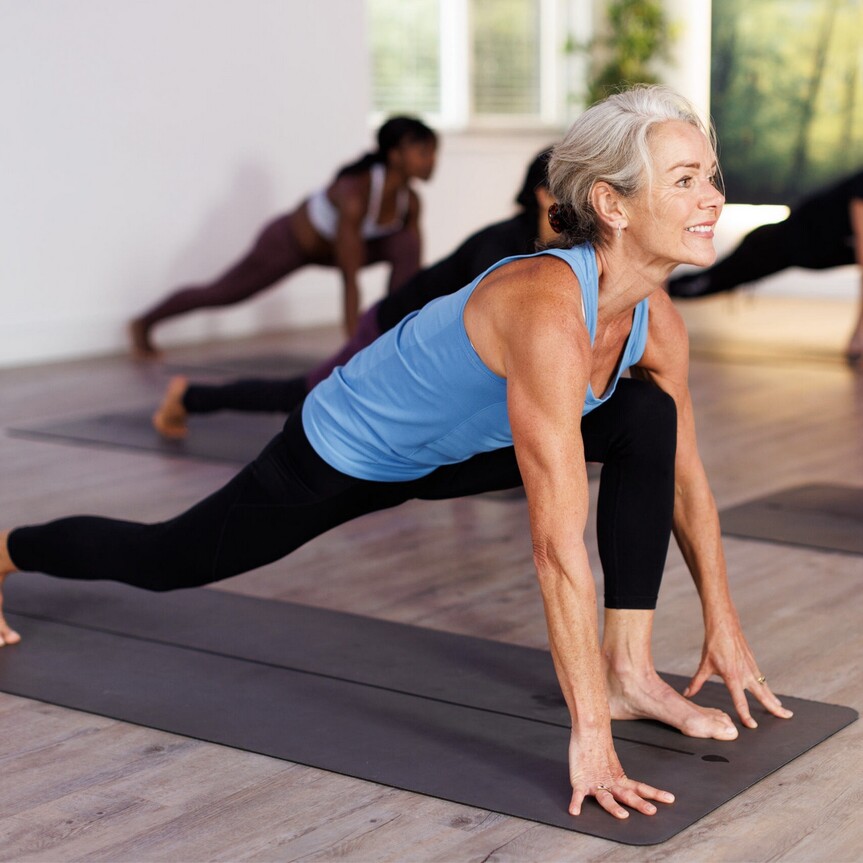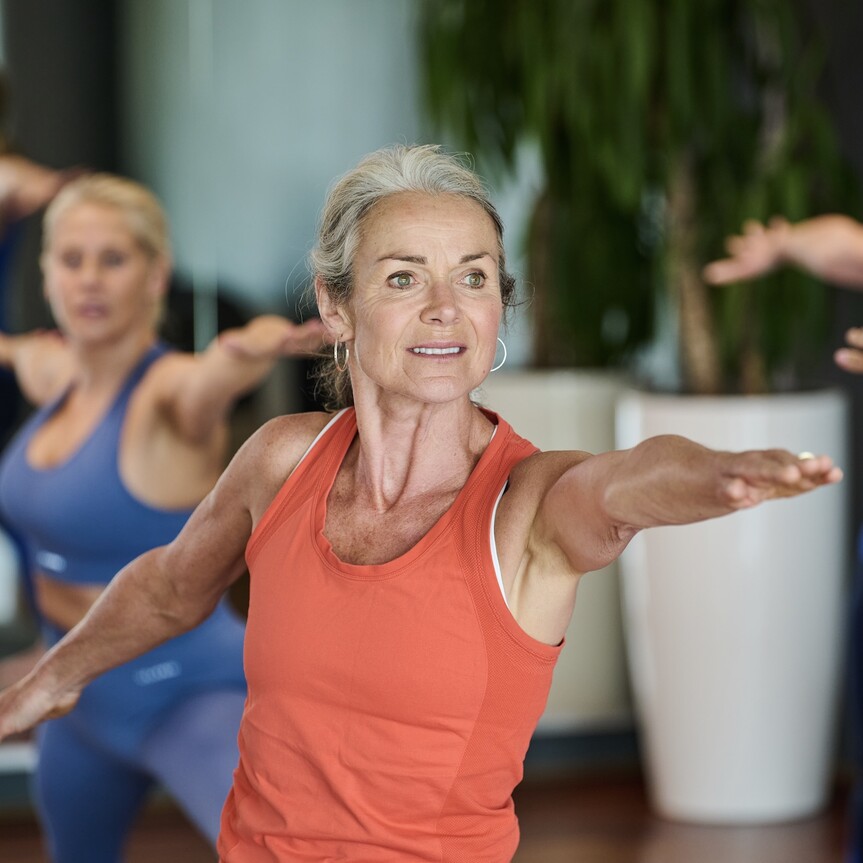The Metabolism Myth
Yes, your metabolism changes during menopause, but it's not an irreversible situation. The biggest factors in midlife weight change are muscle loss and activity levels.
Muscle tissue burns more calories (even at rest), so maintaining muscle mass is a great way to keep your metabolism firing. This is where strength training becomes your secret weapon for looking toned, strengthening your core, and maintaining your base metabolic rate. Pair strength training with staying active to stay one step ahead of menopausal weight gain.

Strength Training: The Hormone Helper
Resistance training is a natural way to support hormone balance. It can help regulate insulin sensitivity, support thyroid function, and even improve your mood thanks to endorphins.
Your club’s gym is perfectly set up to help you strength train safely. Whether you prefer free weights, resistance machines, or functional training, let us help you build your strength and confidence.

The Best Type of Cardio for Menopause
During menopause, your approach to cardio should be strategic. The most important factor is doing something you enjoy. Bear in mind that high-intensity intervals can be great for heart health, but may be too taxing for your central nervous system. Try a mix of higher and lower impact cardio to get the benefits without the stress.
Swimming is a great way to boost your cardiovascular fitness without stressing your nervous system or your joints, and many women find it a meditative activity that helps with stress and sleep.
The Sleep-Energy Connection
Disrupted sleep is one of the biggest energy drains during menopause, and poor sleep can lead to a spiral where you feel too tired to exercise (which eventually leads to worse sleep).
Exercise, particularly strength training, moderate cardio, and yoga classes, can improve sleep quality. Try to finish intense exercise at least three hours before bedtime to give your body time to relax. Gentle activities like walking, yoga, or a swim can help you wind down for better rest.
The Impact of Exercise on Brain Fog
Brain fog is one of the most frustrating symptoms of menopause, but exercise can help. Physical activity increases blood flow to the brain, supports the growth of new brain cells, and can improve memory and concentration.
Group classes have the additional benefit of social interaction, and racquet sports (like padel) challenge your brain to learn new movement patterns to keep you sharp.
Boosting Confidence During Menopause
Many women experience emotional and mental symptoms during menopause. Exercise can help here, too. Sticking to your fitness routine gives you a sense of ownership and self-belief that can help you in other areas of life, too. Getting stronger, learning new skills, and seeing your body respond to exercise is rewarding and empowering.

The Science of Strength
Research shows that women who maintain a regular exercise routine through menopause have better physical and emotional health outcomes. The benefits include better bone density, more muscle mass, stronger metabolic and immune health, mood stability, and sharper cognitive function – not to mention a social network that will get you through the more difficult days!

Community Makes the Difference
One of the most powerful ways to stay energised during menopause is connecting with others who understand how you’re feeling. Our Let's Talk Menopause initiative in October includes fitness sessions designed for women, as well as workshops, social events, and education sessions. Find out what’s happening – we hope to see you there.
